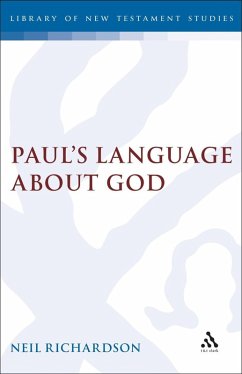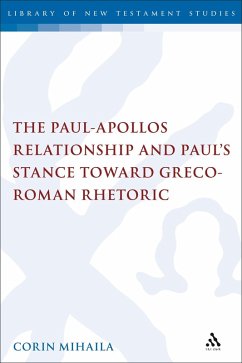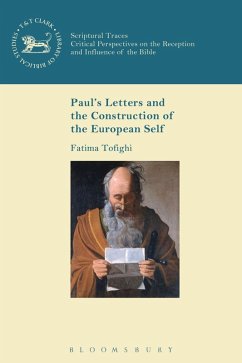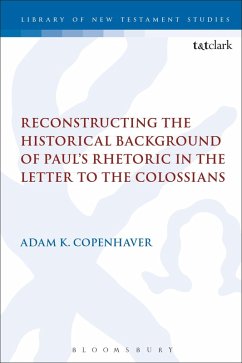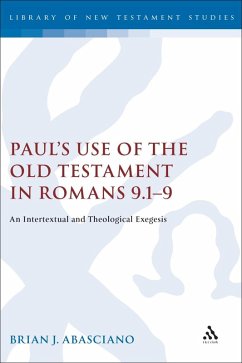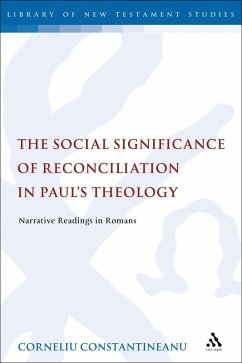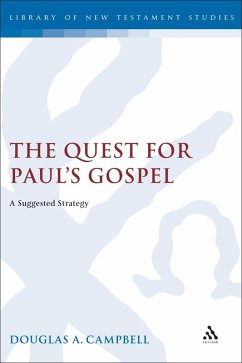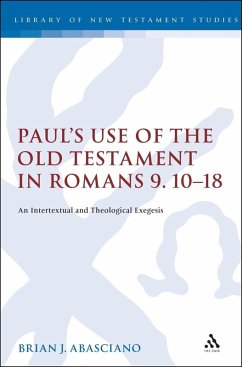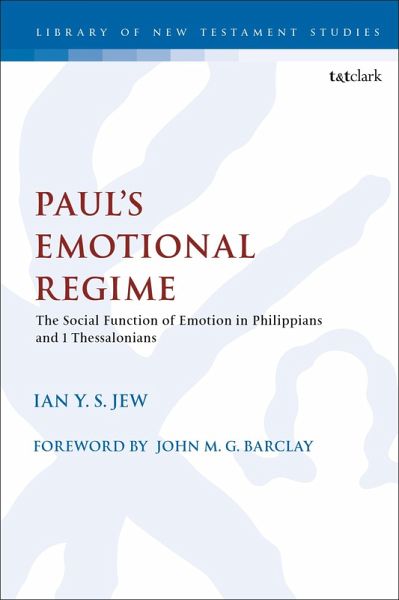
Paul's Emotional Regime (eBook, PDF)
The Social Function of Emotion in Philippians and 1 Thessalonians
Versandkostenfrei!
Sofort per Download lieferbar
25,95 €
inkl. MwSt.
Weitere Ausgaben:

PAYBACK Punkte
13 °P sammeln!
In his letters Paul speaks often of his emotions, and also promotes certain feelings while banishing others. This indicates that for Paul, emotion is vital. However, in New Testament studies, the study of emotions is still nascent; current research in the social sciences highlights its cognitive and social dimensions. Ian Y. S. Jew combines rigorous social-scientific analysis and exegetical enquiry to argue that emotions are intrinsic to the formation of the Pauline communities, as they encode belief structures and influence patterns of social experience. By taking joy in Philippians and grief...
In his letters Paul speaks often of his emotions, and also promotes certain feelings while banishing others. This indicates that for Paul, emotion is vital. However, in New Testament studies, the study of emotions is still nascent; current research in the social sciences highlights its cognitive and social dimensions. Ian Y. S. Jew combines rigorous social-scientific analysis and exegetical enquiry to argue that emotions are intrinsic to the formation of the Pauline communities, as they encode belief structures and influence patterns of social experience. By taking joy in Philippians and grief in 1 Thessalonians as representative emotions, and contrasting Paul's approach with that of his Stoic contemporaries, Jew demonstrates that authorized feelings have socially integrating and differentiating functions; by reinforcing the shared theological realities upon which emotional norms are based, group belonging is bolstered. Simultaneously, authorized emotions fortify the theological boundaries between Christians and others, which strengthens group solidarity in the Church by accentuating its members' insider status. Using this framework heuristically, Jew explores how the interplay of symbolic, ritual, and social elements within Paul's eschatological worldview reinforces emotional norms, and demonstrates that attention to emotion can only deepen our understanding of the social formation of the early believers.





